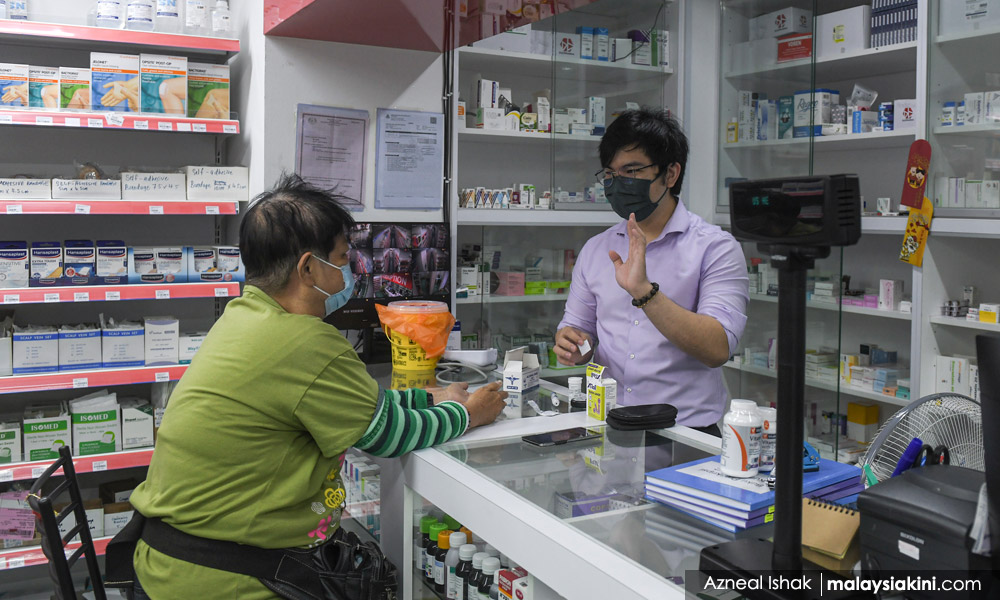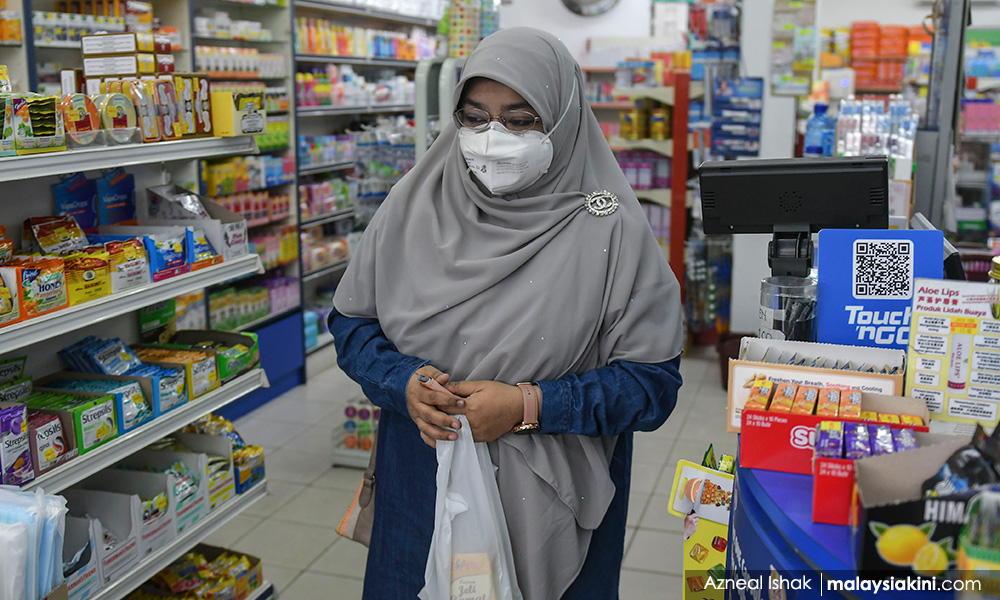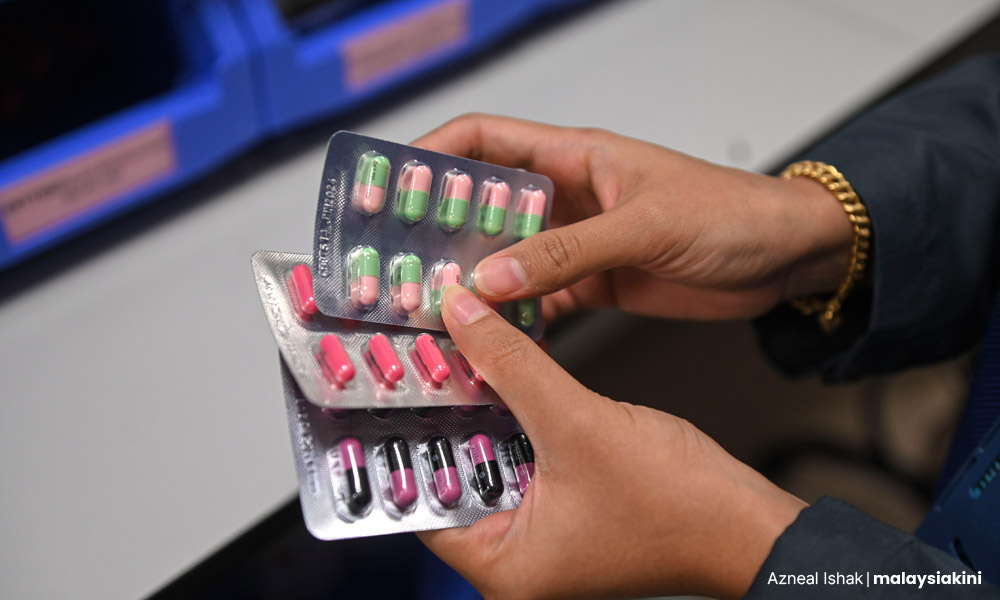LETTER | The evolving role of pharmacists in medication safety
LETTER | World Pharmacists Day on Sept 25 is a timely reminder of the pivotal and dynamic role of pharmacists in safeguarding the proper and safe use of medicines.
Unsafe medication practices and medication errors are a leading cause of injury and avoidable harm in healthcare systems across the world.
Globally, the cost associated with medication errors has been estimated at US$42 billion (RM197 billion) annually. Throughout the world each year, adverse drug events – harm resulting from medication use – cause millions of visits to hospital emergency departments.
Ensuring the safe prescribing and dispensing of medication to patients is a core function of a pharmacist. Pharmacists ensure that patients not only get the correct medication and dosing but that they have the guidance they need to use the medication safely and effectively.
I believe pharmacists have the opportunity to expand their role as patient safety leaders – working with patients and other providers – to improve patient care outcomes and prevent medication errors.
In the changing healthcare landscape today, they are increasingly seen as critical partners in the multi-disciplinary care team addressing complex patient needs.
An area where pharmacists have established their role in ensuring medication safety is the antimicrobial stewardship (AMS) programmes that have been successfully implemented in many countries.

Antimicrobial resistance is a growing public health threat and inappropriate use of antimicrobials (including antibiotics, antivirals and antifungals) has further aggravated the resistance.
Pharmacists have an important role within AMS programmes, including developing and managing antimicrobial guidelines; reviewing individual patient regimens to optimise therapy; educating healthcare staff on the appropriate use of antimicrobials; and monitoring and auditing outcomes.
AMS teams in a hospital setting are often multidisciplinary and include an infectious disease specialist, a hospital pharmacist and a clinical microbiologist, with expertise and professional involvement in the diagnosis, prevention and treatment of infections.
Pharmacists are central to the delivery of education on stewardship to healthcare professionals, patients and members of the public. Being key healthcare educators in the community, they are many a time the first point of contact for the public and have a responsibility to be a source of information and education on antimicrobial use and resistance.
AMS programmes have been proven effective at improving clinical outcomes, reducing adverse events, and reducing resistance.

Given the success of the AMS model, pharmacists’ role in other medication stewardship programmes in therapeutic areas, such as glycemic control and thrombotics, may soon increase.
As evidence continues to demonstrate the success of stewardship programmes, medication stewardship could become a central aspect of the pharmacists’ role in ensuring patient safety.
Community pharmacists have historically provided patients counselling services and communication regarding potentially unsafe medication combinations.
Increasing medication reconciliation by the community pharmacist following hospital discharge has the potential to reduce adverse events, reduce patient hospital readmissions, and even reduce the risk of death.
From a healthcare policy and care delivery standpoint, there is an ever-increasing focus on providing long-term care as a means of increasing the quality and safety of care.
As patient care delivery evolves from episodic to longitudinal, organisations will restructure to care for patients across the continuum. This evolution will reinforce the need for team-based care to ensure care coordination, patient safety, and optimal patient outcomes.
Central to this longitudinal care is the home medication review (HMR) process. The intent of the HMR is to support the quality use of medicines and assist in minimising adverse drug events by helping patients to better understand and manage their medicines through a medication review conducted by a pharmacist in the home.

HMR is a collaborative process between the referring doctor (referrer), pharmacist, patient, and, where appropriate, a caregiver. Currently, there are three HMR services provided by Malaysian government hospitals and health clinics, namely neurology/stroke, psychiatry and geriatrics.
Another way pharmacists’ responsibilities are evolving is with regard to the use of digital health and telepharmacy in improving pharmacy care services. Digital health and telepharmacy have gained increasing importance in the delivery of healthcare, largely due to Covid-19 pandemic.
There are some innovative models of telepharmacy services aimed at optimising and improving access to pharmacy care, resulting in improved patient safety and outcomes.
The pharmacy sector is utilising technology to improve access and affordability for consumers, breaking down geographical barriers to accessing pharmacy services and medicines, and empowering pharmacists to manage medication risks for consumers and to be more accountable and responsible for medication safety and efficacy.
Inputting digital health records, the use of electronic prescriptions and real-time prescription monitoring, for example, also provide opportunities for pharmacists to ensure the safe and quality use of medicines.
Some of the services given through digital platforms are patient counselling, drug therapy monitoring, refill authorisation for the prescribed drugs, monitoring or formulary compliance by means of videoconferencing or teleconferencing, prior authorisation of prescribed drugs, and medication delivery service to remote places.
As the topic of medication error is continually pushed to the forefront of patient safety initiatives, I believe the role of pharmacists will continue to evolve dynamically. This will broaden the opportunities pharmacists have to become integral change-makers in the reduction of adverse events and improvement of healthcare and medication safety overall.
ONG CHIN ENG is dean of the School of Pharmacy, International Medical University.
The views expressed here are those of the author/contributor and do not necessarily represent the views of Malaysiakini.
RM12.50 / month
- Unlimited access to award-winning journalism
- Comment and share your opinions on all our articles
- Gift interesting stories to your friends
- Tax deductable
